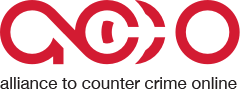PATRICIA TRICORACHE
Illegal Wildlife Trade Expert
Patricia began tackling the issue of illegal cheetah trafficking in November of 2005, when she was working as the Cheetah Conservation Fund (CCF)’s assistant director for strategic communications. At the time, little was known about the magnitude of this illegal trade. It was then that, together with CCF’s executive director, Dr Laurie Marker, Patricia organised a group of stakeholders, including the Ethiopian Wildlife Conservation Authority and the United States Embassy for the confiscation of two cheetah cubs held illegally at a restaurant in a remote area of Ethiopia. The confiscation took place with the support of military personnel, which attracted unexpected media attention and numerous reports of illegal cheetah trade or ownership throughout the Horn of Africa and the Arabian Peninsula.
From there, she began collecting data on illegal cheetah trafficking, which she later expanded with her research into cyber-commerce in collaboration with PEGAS (Project to End Great Apes Slavery). This research, which covers numbers, routes, and drivers for demand and supply, has served to bring attention to the much-ignored issue of live animal trade, and was key to support the inclusion of illegal cheetah trade in the CITES (Convention on International Trade of Endangered Species) 16th Conference of the Parties.
Patricia represented CCF before CITES as well as other international organizations including INTERPOL. Her work in Somaliland, a key trafficking route for cheetahs out of Africa, led to increased government involvement in combating illegal wildlife trade in the Horn of Africa that has resulted in more than 100 cheetah seizures.
Currently, Patricia works at Colorado State University’s Natural Resource Ecology Laboratory (NREL) as their Illegal Wildlife Trafficking Research Assistant.
Read her published reports:
Global Dataset for Seized and Non-Intercepted Illegal Cheetah Trade

